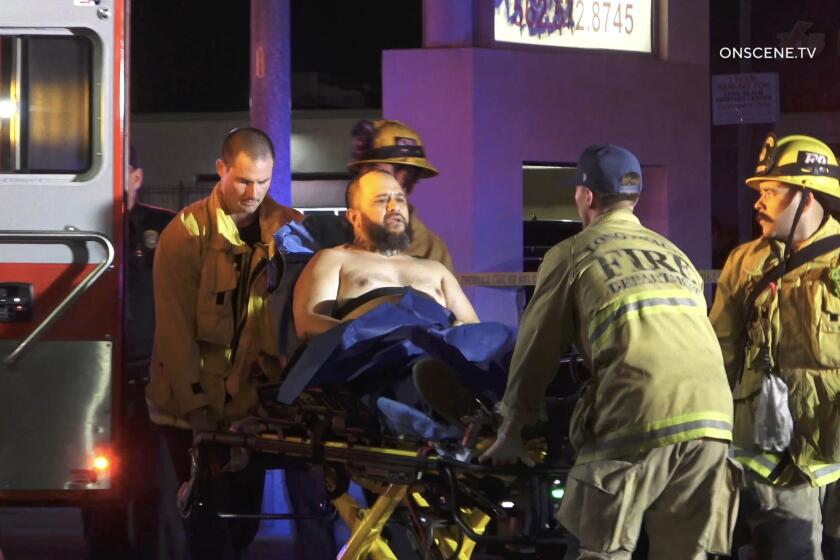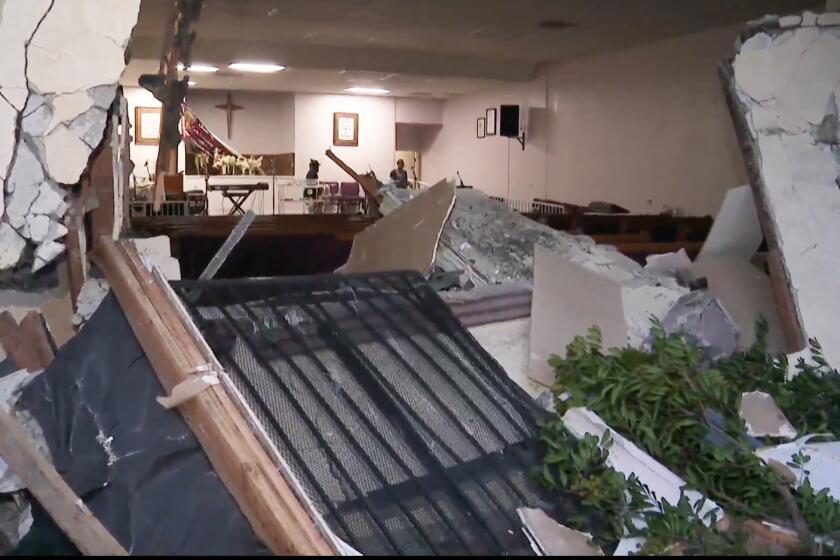Rights Group Holds Police Abuse Hearing : Inquiry: Misconduct is widespread problem, Amnesty International says. Event was set before Rampart case broke.
As the Los Angeles Police Department corruption probe continued Tuesday, the civil rights group Amnesty International came to town to take testimony on the issue of police brutality, and to decry what it called a trend of bad shootings against innocent civilians.
Police brutality is “a persistent and widespread problem in the United States,” said Angela Wright, an Amnesty researcher. “The authorities are failing to protect citizens and violating their civil rights.”
During a day of emotional testimony from victims of alleged police abuse and their families at the University of Southern California, Amnesty International also released the report “USA: Race, Rights and Police Brutality.”
Using anecdotal evidence, the report painted a troubling portrait of rogue, often isolated cops in Southern California and around the nation engaging in acts of brutality against residents. It cited cases in which police shot and sometimes killed innocent people, used dangerous restraint procedures and abused weapons such as pepper spray, stun belts and nightsticks.
“These [particular] developments reflect a wider national problem,” the 30-page report concludes. “Although some police agencies have taken measures to tackle these problems, the evidence suggests that police brutality and excessive force remain both persistent and widespread across the USA.”
The report, which did not name one specific author, added that police abuse is particularly bad against minorities, the homeless, the mentally ill and gays and lesbians. It concluded by calling for better civilian oversight over police and more aggressive prosecution of corrupt and violent officers.
The hearing, scheduled months ago, takes place at an opportune time for the researchers as Los Angeles is rocked by allegations of bad cops shooting innocent people and then covering up the shootings, at times by charging the victims themselves with crimes.
“Given the terrible revelations of the last few days here in Los Angeles, your hearing appears particularly timely,” said James Fyfe, a former police officer and Temple University professor of criminal justice who is a frequent court witness on the issue of police brutality.
Fyfe said he was troubled by the revelations of the past few days, which focus on anti-gang officers in the Rampart Division. But he praised the LAPD for addressing problems of police brutality it has faced in years past. “As far as I can tell, its dogs no longer tear up people indiscriminately and routinely,” Fyfe told the panel. “Its officers no longer ‘choke out’ traffic violators.”
Others had far less charitable things to say about the LAPD and other police departments in Southern California.
One by one, they sat before the panel and told of sons and daughters killed by the police during routine traffic stops, while being questioned and while in custody.
Among them: Constance Flaum, whose son Michael William Arnold died after being shot 106 times by law enforcement officers from three departments, and Obee Landrum, whose nephew Irvin Landrum Jr. was shot to death by Claremont police. Attorneys for the families of police shooting victims Margaret Laverne Mitchell and Mario Paz also spoke.
Listening to the testimony was a panel of civil rights experts, including Michael Gennaco, the assistant U.S. attorney for Los Angeles in charge of investigating allegations of brutality by police.
Although he had no comment on the specific allegations of abuse raised during the day, Gennaco listened intently, took notes and praised the event as a necessary step toward making police officers more accountable to the public they serve.
After hearings in Chicago and Pittsburgh next month, Amnesty International expects to release another report on police brutality.
More to Read
Start your day right
Sign up for Essential California for news, features and recommendations from the L.A. Times and beyond in your inbox six days a week.
You may occasionally receive promotional content from the Los Angeles Times.






